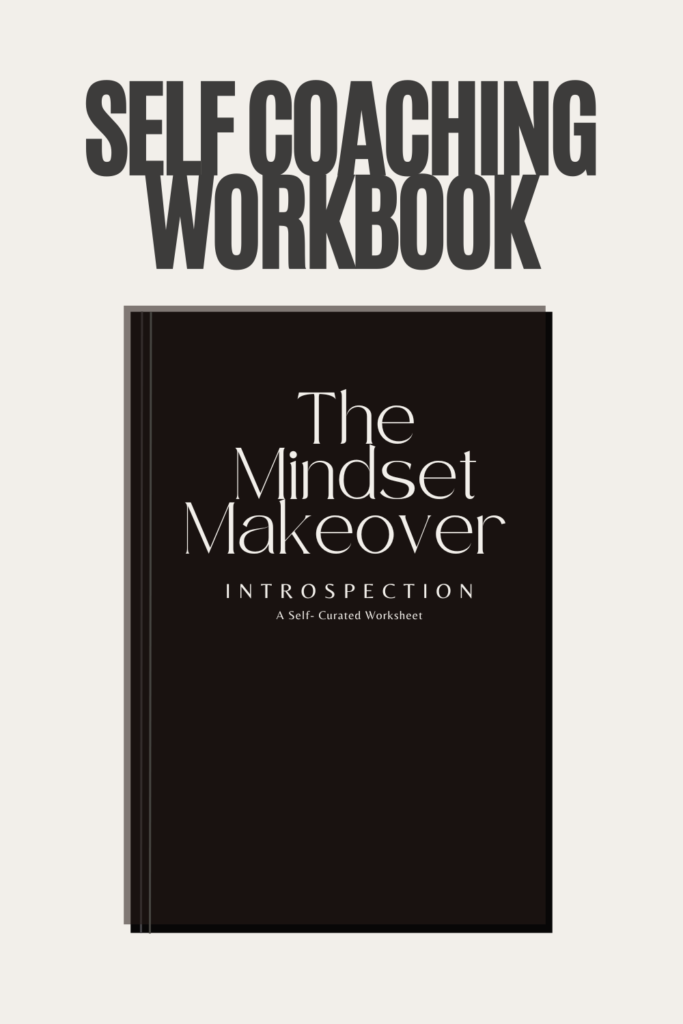Your story isn’t set in stone—it’s waiting for you to rewrite it!
I used to think journaling was just about keeping a diary—scribbling down what happened during the day.
But psychology tells us something different: when you put pen to paper, you’re not just writing, you’re processing emotions, rewiring your brain, and creating space for new patterns of thought.
In other words, journaling can literally reshape the way we see ourselves and the world around us.
Have you ever caught yourself replaying the same story in your head—the one that says you’re not good enough, or that things will never change?
I’ve been there too. The beautiful thing is, journaling gives you the chance to step back, take control, and begin rewriting that story with intention.
In this post, I’ll walk you through 9 life-changing journaling steps to rewrite your life story.
These aren’t just fluffy tips—they’re simple practices that can bring more clarity, calm, and confidence into your everyday life.
Why Should You Even Care About Journaling?
Before integrating journaling into your daily routine, it’s important to understand what it really means and why it’s beneficial.
Journaling is a written account of your thoughts and feelings as you navigate through everyday life.
The beauty of journaling is that there’s no right or wrong way to do it. It’s a deeply personal experience that can take many forms.
Benefits of Journaling
- Improves mental well-being by giving your thoughts and emotions a healthy outlet
- Provides a space to express gratitude and notice the positives in your life
- Helps you work through challenges and gain perspective
- Supports goal-setting and keeps you accountable
- Encourages self-compassion by letting go of judgment (your journal is for your eyes only)
- Eases anxious thoughts by moving them from your mind onto paper
- Brings clarity when you’re faced with tough decisions
- Helps you focus on what truly matters to you
- Strengthens emotional resilience and makes room for more joy
- Nurtures creative expression and self-discovery
As author Aimee Chase, who wrote the guided journal Purpose, Not Perfection, puts it: “You don’t have to rack your brain to consider what you’ll write about. You don’t have to research. It’s all in you.”
And that’s the beauty of journaling—it doesn’t have to follow one rigid format.
Some days it might look like a heartfelt diary entry, other days a simple gratitude list, and sometimes it’s just scribbles of raw emotion you need to release.
At times, your journal becomes a haven, especially when you’re not ready to voice your feelings out loud.
No matter what form it takes, journaling has the same ultimate purpose: to help you clear your mind, focus your energy, and feel more at peace.
Types of Journaling
1. Reflection Journal
A reflection journal is a safe space to jot down the events of your day.
It can help you process complex emotions and thoughts experienced during that day. It can also be a private place to reflect on your life.
This journaling technique is a therapeutic practice that can help you develop visions for the future or simply get to know yourself a little better.
You can look back on previous entries, see your progress, and track your goals.

2. One Line A Day
One-line-a-day journaling can help you get into the habit of writing every day.
It’s not too much pressure and not too overwhelming to jot down a sentence, so you’ll be more likely to keep this practice.
Writing even just one line a day helps capture key moments, mundane thoughts, or record simple observations. You don’t need to capture everything.
Over time, you will notice patterns, and what seems ordinary now might soon be a memory you’ll love to reminisce about.
3. Unsent Letters
An unsent letter is written for catharsis and is never meant to be mailed. It’s an incredible journaling technique to help you get closure or foster forgiveness and peace of mind.
This journaling technique is amazing because it helps you realize and notice your evolution as a person and how much you have grown and changed the way you think.
It lets you tap into stores of wisdom that you didn’t know you had. It gets you in touch with your intuition, especially when you’re facing tough decisions.
For an incredible boost of confidence: Try writing a letter from your future self to your current self, or better yet, write a letter to your future self, your future friends, or your future lover.
To let off steam or express gratitude: Write an unsent letter to anyone who is a part of your current life, like your family, friends, or enemies, people that you interact with at the present moment, or your ex.
- Talk about how your life is today
- What worries you the most?
- What mindset blocks and limiting beliefs are you struggling with
- What hurt you?
- How has this person affected you?
- What’s going very well in your life currently?
- What are your wishes and hopes for the future?
Reading these unsent letters years later and noticing how all these situations you talked about evolved and changed is just purely magical.
4. Letter To Your Inner Child
Writing a letter to your inner child is another great exercise because it involves addressing emotions and experiences from your childhood.
It’s about recognizing how you felt back then and telling her what she needed to hear.
Many of us may still hold grudges and reminisce. We hold on to things as a way to escape from the present, and it’s imperative to let go of that.
5. Visual Journaling
Visual journaling can be another great way to combine artistic inclination with personal reflection.
More tied to daily life than art journaling, a visual journal gives you a space to process your feelings and log your life through illustrations.
You can get additional support here: 15 Life-Changing Apps That Will Transform Your Lifestyle
6. Free Writing
Free writing means setting a timer and letting your thoughts flow, unedited and unscripted, onto the page. It’s a potent practice to make sense of your thoughts and mixed emotions.
Free writing is all about keeping your hand moving and not pausing to go back and edit or construct a perfect phrase.
The goal is simply to keep writing whatever comes to mind for a specified amount of time or a set number of pages.
Whether that’s describing your surroundings, remembering your first thoughts in the morning, or brainstorming a brilliant new idea.
Free writing is a journaling technique that’s all about letting whatever emerges in your head flow onto the pages without letting your inner critic silence you.
7. Gratitude Journaling
This is one of the most powerful journaling techniques with life-changing possibilities that are proven in studies to make you a happier and more productive person.
It’s a proven practice backed by successful entrepreneurs, spiritual leaders, and even science.
Expressing gratitude also helps you stay grounded, motivated, and positive even through difficult times.
- Write about being grateful for your life, your family, and your work
- Write about an old relationship that helped a lot
- An opportunity you have today
- An amazing experience
- Something good or great happened yesterday
- A dream you believe will come true (future journaling)
- A failure that you know is a blessing in disguise
Here are some hacks: 11 Science-Backed Benefits of Gratitude You Need to Know
8. Scripting
Scripting is the practice of writing as if you’re already living your dream life.
Instead of only describing the result, you write the journey in the past tense—step by step—as though you’ve already manifested it.
So, where do you start? You could be imagining yourself:
- Living in your dream home, or living in your dream country
- Being the person you want to be
- Your daily routine and habits
- Your financial situation
- The business that you finally have
- Working in your dream job
- Your health and wellness
- Living your dream life

9. Bullet Journaling
Bullet journaling, created by digital designer Ryder Carroll to manage his ADD, is both a planner and a diary.
Unlike a regular notebook, a BuJo helps you organize daily tasks, track habits, monitor health, and set short- and long-term goals—all in one creative space you can design or buy pre-made.
Journaling As A Habit
Starting a journal is simple, but turning it into a lasting habit takes patience and self-discipline.
Like any meaningful change, it’s not about perfection—it’s about showing up for yourself, one page at a time.
Think of journaling as a daily practice of growth, self-discovery, and clarity. Some days your words will flow, other days they’ll feel messy, and that’s perfectly okay.
What matters is that you’re putting pen to paper and giving yourself the space to reflect, release, and realign with the life you want to create.
When you commit to journaling, the benefits ripple into every area of your life—your mindset, your relationships, even your professional path.
There’s no right or wrong way to do it; the only “rule” is to make it your own.
Learn more about habits: 13 Underrated Daily Habits to Kickstart Your Best Life Yet
Frequently Asked Questions About Journaling
1. How long should I journal each day?
There’s no set rule. Some people write for 5 minutes, others for 20. Even a short daily practice can bring clarity and calm.
2. Can journaling really improve mental health?
Yes. Studies in psychology show that putting pen to paper helps reduce stress, ease anxiety, and increase self-awareness. It’s a healthy way to process emotions and reframe negative thoughts.
3. Should I write on paper or use a digital journal?
Both work. Paper helps you slow down and process more deeply, while digital apps can be convenient and organized. Choose the method that feels natural to you.

















38 comments
Monica
Such amazing ideas! Will be doing this for sure
Lani
Hi Monica,
I’m glad you enjoyed this post. I hope you try out some of them soon.
Fransic
This is interesting, I know a journal but didn’t know about these types tbh. It’s the first time to know about them. Thank you for sharing!
Lani
Hi Fransic,
I didn’t know about it until I realized traditional journaling doesn’t work for me. I’m just so happy to find different ways to journal. I’m currently doing the one-sentence journal to make it a habit.
Dana
I enjoyed reading about how journaling can change the course of your life. I love all of the ideas you provide here. Journaling has helped me with creativity. I have done a “brain dump” style journaling for some time first thing in the morning.
Lani
Hi Dana,
I’m glad you enjoyed this post. Try to get your free copy: Journal Prompts on the link for better direction.
Isabella
Great insight into journaling. I don’t think I could go that in-depth but I’d like to try the one-sentence journaling and then see from there. Thanks for sharing!
Lani
Hi Isabella,
Indeed the One-sentence journaling is a great way to start. Try to get your free journaling prompts on the link to get started.
Katherine
This is such a great post for getting into journalling. I especially like the thought of writing a letter to your inner child. Thank you for sharing!
Lani
Hi Katherine,
I’m glad you enjoyed this post. Writing to your inner child can definitely get all those emotions and thoughts out. It’s also a great read for you in a few years’ time.
Joi
Have been journaling my entire life ? Don’t know what I would do without it!
Lani
Oh wow Joi, good for you.
gabby
Love this blog post. I agree, journaling is so helpful!
Lani
Hi Gabby,
I’m glad you enjoyed this post. I hope the tips work on your behalf.
Yzzy
This is a great post! My journaling experience has been life changing, for me it is a safe way to express my thoughts without fear of being judged and even better to be able to reread them later from a different mindset, identify my fears and learnings. It has also helped me a lot to organize my thoughts before communicating in my relationship. I have to admit that at first I felt I was wasting my time, but then I could clearly see its benefits in my life.
Lani
Hi Yzzy,
I totally agree with you. Journaling is just so therapeutic.
Lou
One line a day is such a great idea! I also love free journaling. It’s like planning and journaling in one!
Lani
Hi Lou,
I totally agree with you. I have a list of Journaling Prompts, don’t forget to grab your copy! (link is in the post or in the Freebie folder)
NIA
I try to journal every day and it was nice to read the benefits of what it could be doing to improve my daily life. Thanks for sharing!
Lani
Hi Nia,
I’m glad you got more insights from this post. Happy Journaling!
John Mulindi
I don’t do much journaling, but after reading your post, I have enough reasons to consider it seriously.
Lani
Hi John,
I’m glad I changed your mind. You might want to get a free copy of my journaling prompts. The link is in the freebie folder or in the post.
Kirsten
Great post! Thanks for sharing!
Lani
Hi Kirsten,
Thanks for your comment
Melissa
I’ve heard a lot about how journaling is so good for you. But I love that you took it a step further and had ideas for different journaling types. This is really helpful!
Lani
Hi Melissa,
Indeed journaling has a lot of benefits but as unique individuals, we express ourselves in different ways. So I needed to find ways that would make journaling an amazing experience not only for me but also for others. I hope you found your approach to journaling here.
Pantea
I absolutely LOVE your article and appreciate all the different types of journaling suggestions you shared. If anyone is new to journaling and unsure where to start, I suggest Journaling for Beginners https://pantearahimian.com/?s=journaling
Lani
Hi Pantea,
Thanks for your comment. I will check out the suggestions on your post.
Joi
My therapist loves that I journal! It’s the only place I feel heard!
Lani
Hi Joi,
I love how you said that journaling is a place to be heard.
Nicolle
Love, love, love journaling, such an amazing tool and it helped me so much.
Thanks so much for sharing the article!!
Lani
Hi Nicole,
I’m happy that you loved this post, I hope the tips will help you moving forward!
Fieke
Amazing ideas! I love gratitude journalling. Scripting is something I haven’t tried before, but it sounds great. Really need to try. Thank you!
LaniAuthor
That’s wonderful! Gratitude journaling is so powerful, and scripting can be such an inspiring addition. I’m so glad this resonated with you!
Kat Stano
I love how you shared so many different types of journaling! That really helps to give people options in how they’d like to write down their thoughts and express themselves. Nice post! Thank you!
LaniAuthor
So glad you enjoyed it! Journaling really isn’t one-size-fits-all, and having different approaches makes it easier to find what feels natural.
Jen
I love journaling! It helped so much with my mental health. Gratitude journaling is my favorite.
LaniAuthor
That’s beautiful! 💛 Gratitude journaling is such a powerful practice—it really shifts your focus toward the good and brings more positivity into everyday life.